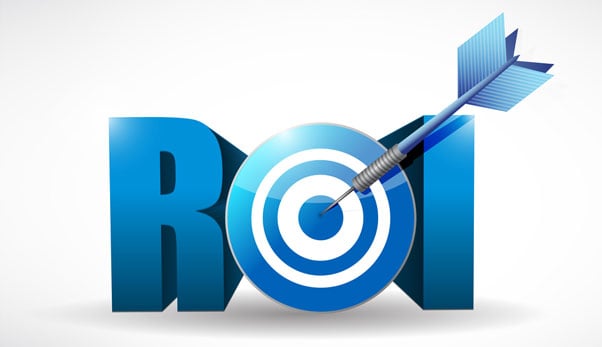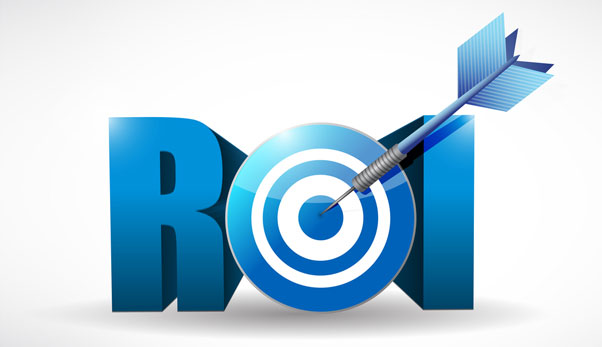
|
We often refer to the agency/client relationship as being like a marriage – it needs the right chemistry and the right give-and-take to work properly and deliver results. I was a Cognition client before I joined the company; I have gone through the agency selection process more than once. Having sat on both sides of the table, here are my secrets to assessing whether a marketing agency is a good fit for a company. |
1. Set out your business’s commercial objectives
When I meet with prospective clients I always ask if they have a business plan. Because it’s impossible to put together an effective marketing strategy if we don’t know what you’re trying to achieve.
Ideally articulate short- and medium-term goals, like turnover growth or customer retention, as well as long-term goals, like exit strategies or MBOs. That way the agency can develop a marketing strategy that fits in with your business’s growth trajectory. The marketing will then be measurable using relevant indicators, so you can track return on investment.
The agency/client relationship then becomes a true partnership with clear expectations on both sides – because we know the big picture and you fully understand what success looks like after three, six and twelve months of using the agency.
2. Look for mutual investment in the relationship
You’re the one being invoiced, but there needs to be two-way investment for the relationship to work. That way both sides are working towards a lasting relationship. You have peace of mind that you’re getting marketing that will work for the long term, and the agency knows that you’re willing to invest in getting it right.
At the beginning of any relationship there needs to be a ‘get to know you’ period, where the agency really delves into your business, proposition, competition and customer.
This is because effective marketing is based on processes and evidence, not guesswork. Marketing has to start with the customer, not your company, and understanding customer goals, drivers and motivations takes time up front. The statistics back this up. Interconnected World found that a targeted buyer persona strategy lifts sales leads by 124%.
3. Drill into the skill sets within the agency
Most of the enquiries we get aren’t ‘I need a marketing agency.’ They’re along the lines of, ‘I need a new website’ or ‘I need PR.’ You may have a very specific idea of what you need now, but you should also plan for what you need down the line.
For example, once you have a new website you’ll likely need tactical activity to drive people to that website. Which may mean sending out marketing emails. To get the most from an email marketing campaign you need a marketing strategist to plan out the approach. You may find that you need new sales materials to follow-up with leads you get from your new website. This requires design and copywriting (and potentially print) expertise.
Another example: PR is increasingly digital. Which means you’re likely to need a blog or social media strategy to get the most from your media budget. That means you don’t just need a PR expert, you also need a content writer and a social media manager.
If the agency has all the marketing, PR, creative and social disciplines under one roof you’ll save yourself lots of hassle and money further down the line, because you’ll be able to dip into the skill sets you need when you need them. As a result your marketing will be more agile, responsive and cost effective.
4. Make sure the focus is on the outcome rather than the output
One of my colleagues attended a social media conference recently and was amazed that the speakers spoke about results in terms of how many people viewed a YouTube video or liked a post on Facebook.
YouTube views and Facebook likes are great, but they’re a means to an end. And volume alone isn’t really an indicator of success. 100 people liking a Facebook post is only worthwhile if those 100 people are existing or potential customers, and if getting that engagement is helping you achieve your commercial goals (reread point 1 above!).
You avoid this outcome/output trap by putting together clear goals at the start of the relationship. Ideally they’ll be SMART (Specific, Measurable, Achievable, Relevant, Time-based) goals, rooted in commercial objectives. I know it sounds like a management school cliché, but having SMART goals helps both sides focus on getting the right outcome, and ensures that you have a way to measure return on investment.
Otherwise, you may find yourself in a position where you have a set of lovely brochures as outputs, but the brochures don’t actually help with your sales process.
5. Assess how your company fits into the agency’s client portfolio
When you’re comparing websites, most agencies present an attractive face to businesses of all sizes. But the hard reality is that most are geared towards large organisations with big budgets and a large in-house marketing resource. Most agencies will attempt to make what works for these large corporations work for smaller businesses, but what works for Coca Cola or Apple may not work for you.
Look at the percentage of SMEs in the agency’s client base. A high percentage means that the agency knows how to deliver results for your type of company on your scale of budget. It also means you won’t be competing with dominant company for face time with your account team.
6. Check that there’s in-depth reporting
Like other professional services, marketing agencies sell expertise by the hour. Since you’re buying time you have a right to know how the agency is spending that time.
The agency should share regular time reports with you, and you should be able to see the complete breakdown on request. That way you can make sure you’re getting full value for your monthly fee.
Here are some reporting-related tips:
- Check what the minimum time interval is for time recording: This is important. If the minimum interval is 15 minutes you’ll be charged 15 minutes for a 5-minute telephone conversation.
- Look at the rate card for the entire agency: Some agencies have different charge-out rates based on seniority. Thus, a director might be £200 per hour but a junior executive might be £75 per hour. If you’ve developed a solid relationship with someone senior during the tender process, you need to know what input they’ll have moving forward given your budget. The agency will advise on their recommended approach for team involvement, but you need to go into the relationship with eyes wide open.
- Set boundaries for the relationship: The agency will record time against all calls and emails, so you need everything clear up front if the relationship is going to be profitable. There’s nothing worse than getting a time sheet and realising that 20% of your budget has been wasted by fruitless chasing on either side.
These 6 points give you a good place to start when looking at agencies. But at the end of the day you need people you trust, like and can work with. That requires conversations and meetings so you get a feel for the chemistry and fit.
If you want to chat further about any of these points (or if you have questions specific to your business) just give me (Paul Houston) a ring on 0800 781 0247.
And if you want more insider tips, read Cognition MD Tim Witcherley's article in The Drum Magazine: 3 Secrets to a Successful Agency/Client Relationship.
Find out in 5 minutes whether you're maximising return on investment on your sales and marketing spend by taking our marketing health check below





